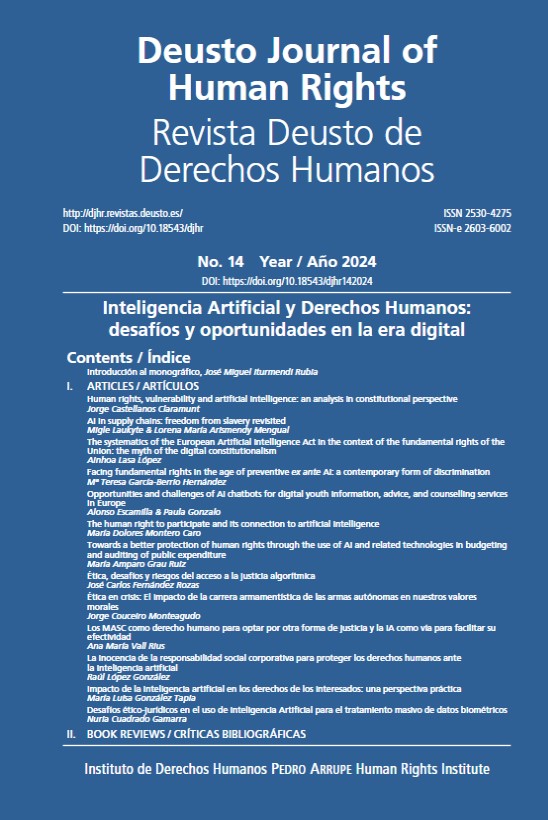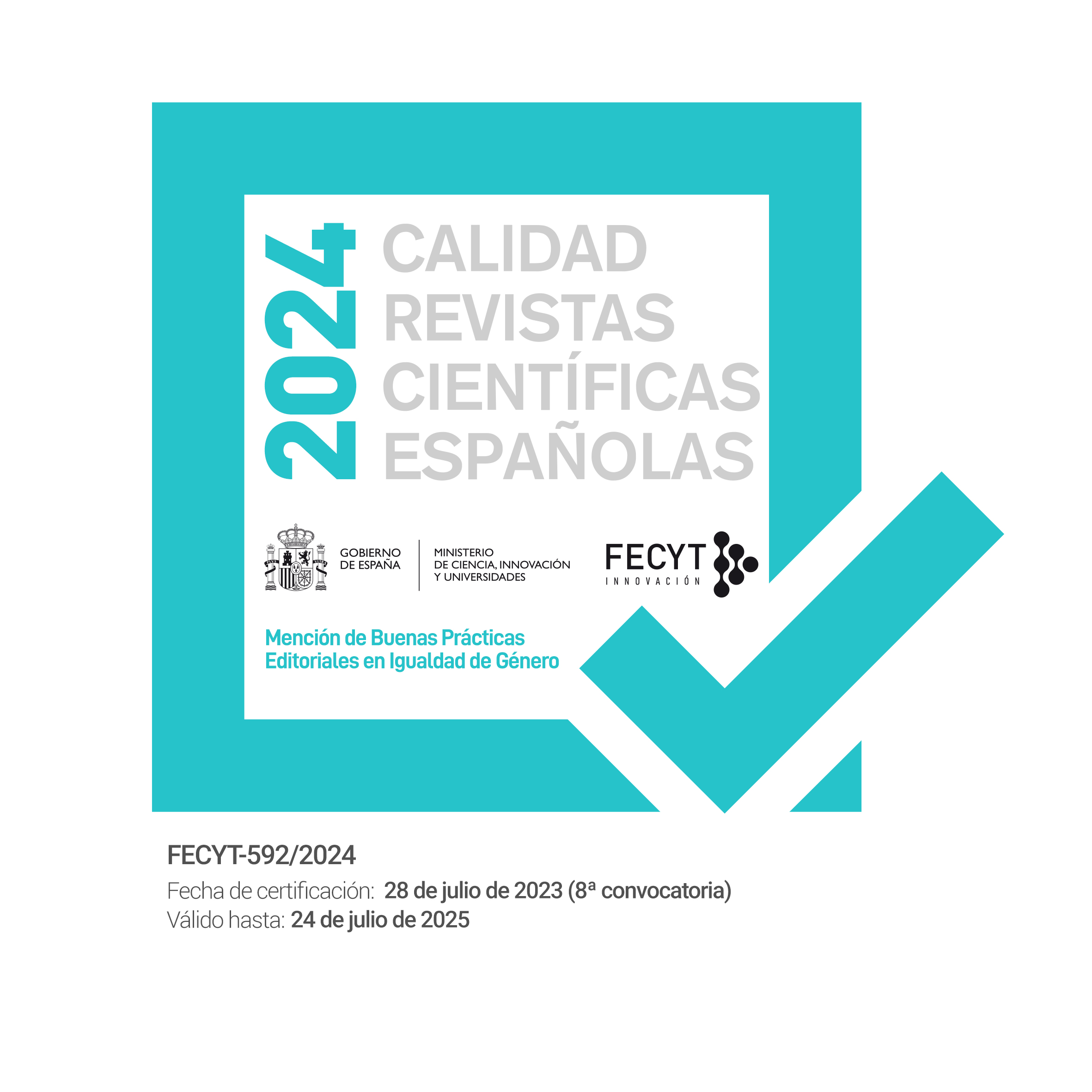The ADR as a human right to choose another form of justice and AI as a way to facilitate its effectiveness
Abstract
The acronym ADR (Appropriate Dispute Resolution) or in Spanish MASC (Appropriate Methods of Dispute Resolution) encompasses a set of peaceful conflict management methodologies that represent a new way of understanding justice, in which citizens themselves are directly involved in the search for constructive solutions. For this reason, the commitments that are reached, in addition to being consensual, respond better to the needs and circumstances of each person, each case and situation. Many experts in the field understand that being able to choose the effective application of any of these methods to manage discrepancies and interpersonal conflicts is a right that must be within the reach and disposal of all people without any type of discrimination or insurmountable obstacle, at the same time, as well as the right of access to Justice, since these methods offer a new meaning to the old expression of “doing justice.” For this reason, it is necessary to have so-called Artificial Intelligence (AI) systems that facilitate this new paradigm also becoming a reality in situations in which, due to various circumstances, a personal meeting between the parties in conflict is not feasible or is not desirable.
Received: 29 May 2024
Accepted: 22 November 2024
Downloads
References
Becker, Howar. 2009. Outsiders. Hacia una Sociología de las Desviación [1963]. Buenos Aires: Siglo XXI Editores.
Christie, Nils. 1977. «Conflicts as property». The British Journal of Criminology 17 (1): 1-15.
Kant, Immanuel. 2012. Contestación a la pregunta: ¿Qué es la Ilustración? Barcelona: Taurus.
Lauroba, M. Elena y Pascual Ortuño, coord. 2014. Mediación es justicia. El impacto de la Ley 5/2012, de mediación civil y mercantil, Barcelona: Huygens.
Martin Diz, Fernando. 2020. «Inteligencia Artificial y ADR evolución en el arbitraje y la mediación», La Ley. Mediación y arbitraje: 2.
Maturana, Humberto y Francisco Varela. 2003. De máquinas y seres vivos. Autopoiesis: la organización de lo vivido, Buenos Aires: Lumen.
Ortuño, Pascual. 2018. Justicia sin jueces: Métodos alternativos a la justicia tradicional. Barcelona: Ariel.
Sánchez López, Jorge. 2024. La IA: un espejo de nuestra alma. Acceso el 1 de septiembre de 2024. https://www.linkedin.com/pulse/la-ia-un-espejo-de-nuestra-alma-jorge-s%C3%A1nchez-l%C3%B3pez-usw9f/.
Tamarit, Josep M. 2020. «El lenguaje y la realidad de la justicia restaurativa», Revista de Victimología 10: 43-70.
Vall, Anna. 2022. Justicia restaurativa. Estado de la cuestión y propuestas de lege ferenda. Valencia: Tirant Lo Blanch.
Varona, Gemma. 2020. «Justicia restaurativa digital, conectividad y resonancia en tiempos del COVIV-19». Revista de Victimología 10: 9-42.
Zehr, Howard. 1991. Changing lenses: New focus for crime and justice. Scottdale: Herald Press.
Zehr, Howard. 2007. El pequeño libro de la justicia restaurativa. New York: Good Books.
Deusto Journal of Human Rights / Revista Deusto de Derechos Humanos is an Open Access journal; which means that it is free for full and immediate access, reading, search, download, distribution, and reuse in any medium only for non-commercial purposes and in accordance with any applicable copyright legislation, without prior permission from the copyright holder (University of Deusto) or the author; provided the original work and publication source are properly cited (Issue number, year, pages and DOI if applicable) and any changes to the original are clearly indicated. Any other use of its content in any medium or format, now known or developed in the future, requires prior written permission of the copyright holder.



3.jpg)
3.jpg)
3.jpg)
.jpg)








